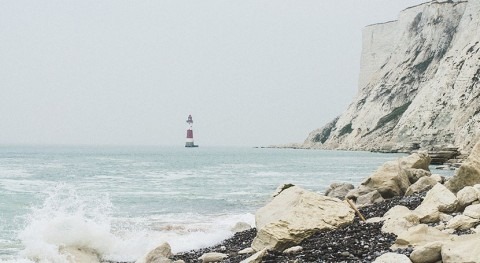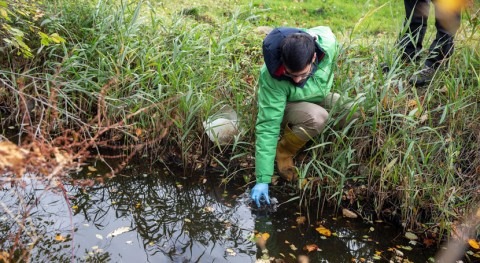Europeans spend more than £700 billion (€800bn) a year on recreational visits to water bodies—but perceived poor water quality costs almost £90 billion (€100bn) in lost visits, a new study has found.
The new research—led by a European collaboration involving the University of Exeter and the University of Stirling—used data from 11,000 visits in 14 different countries to analyse the economic value of water bodies, such as rivers, lakes, waterfalls, beaches and seaside promenades.
The research team estimated that people spend an average of £35 (€40) travelling to and from these sites, with a typical family making 45 such trips each year.
The team also found that people were much less likely to visit sites if the perceived water quality fell, at a cost of well over €100 billion per year. The finding highlights the importance of maintaining and improving high bathing water quality standards.
Published in Science of the Total Environment, the team's calculations indicate that, across Europe, total expenditure relating to trips to water-based settings is in excess of £700 billion annually.
Across Europe, total expenditure relating to trips to water-based settings is in excess of £700 billion annually
Professor Tobias Börger, of the Berlin School of Economics and Law, used data collected as part of the European Union-funded BlueHealth project, which surveyed more than 18,000 people on their use of water bodies and their health and wellbeing. He explained: "The COVID-19 crisis has taught us all how important access to natural green and blue spaces is for people's mental health and wellbeing. Our research highlights that it's also critical for the economy to maintain high standards of water quality, as the pandemic crisis begins to ease."
Following a Directive adopted by the European Commission, across the EU-member states, more than 15,000 coastal and almost 7,000 inland designated bathing water sites must now prominently display signs stating water quality over the past four years. Around 95 percent of sites meet minimum quality standards and are considered safe for bathing, while 85 percent are rated as having excellent water quality.
Professor Danny Campbell, from the University of Stirling, a co-author on the study, added: "While the study reveals that changes in water quality matter to people, we found that household income and educational attainment are not related to visiting water bodies. This shows that all parts of society can and do enjoy the benefits of such visits in terms of recreation, health and wellbeing."
The findings fit well with a growing body of work looking at people's experiences of inland and coastal waters and health across Europe. Co-author of the study, Dr. Mathew White at the University of Exeter, said: "Blue spaces benefit people in a variety of ways. They encourage physical activity, they help de-stress and relax people, and they are important places for spending quality time with family and friends, all things which help people's mental and physical health. This research finds that good water quality is key in encouraging people to take up these benefits."
The team hopes their study will help planners and regulators justify the costs of building and maintaining the infrastructure needed to keep bathing water quality high.



















